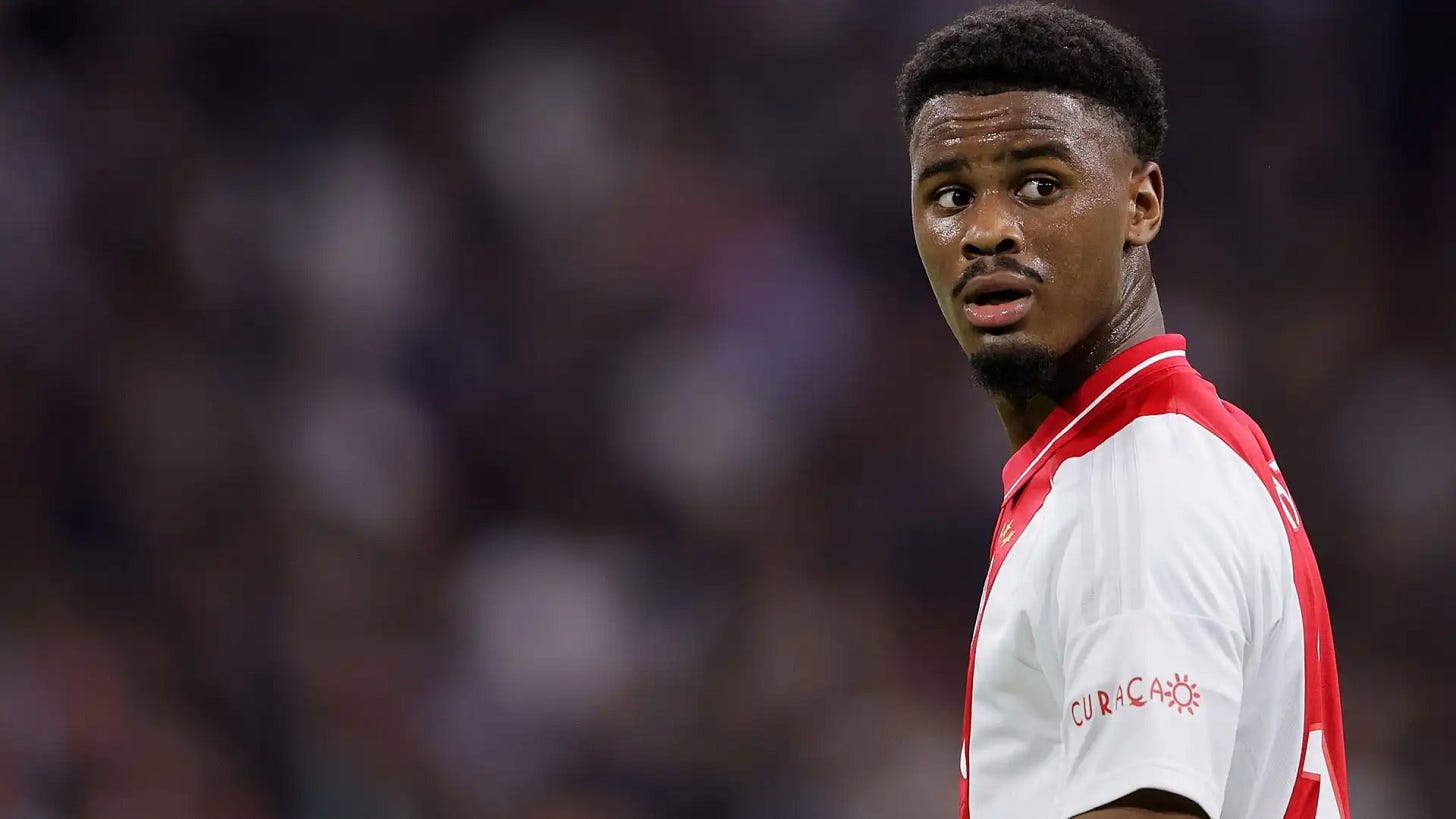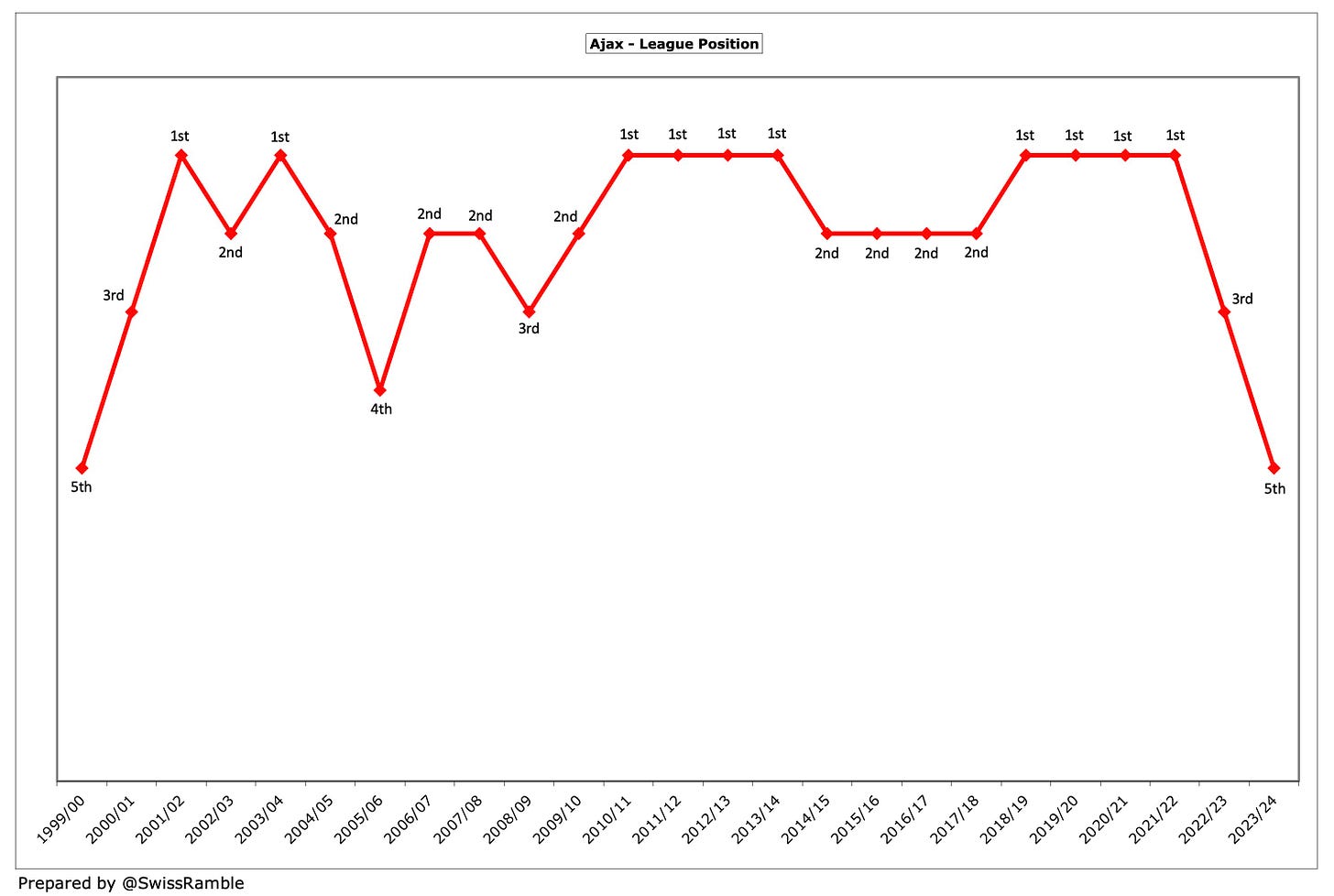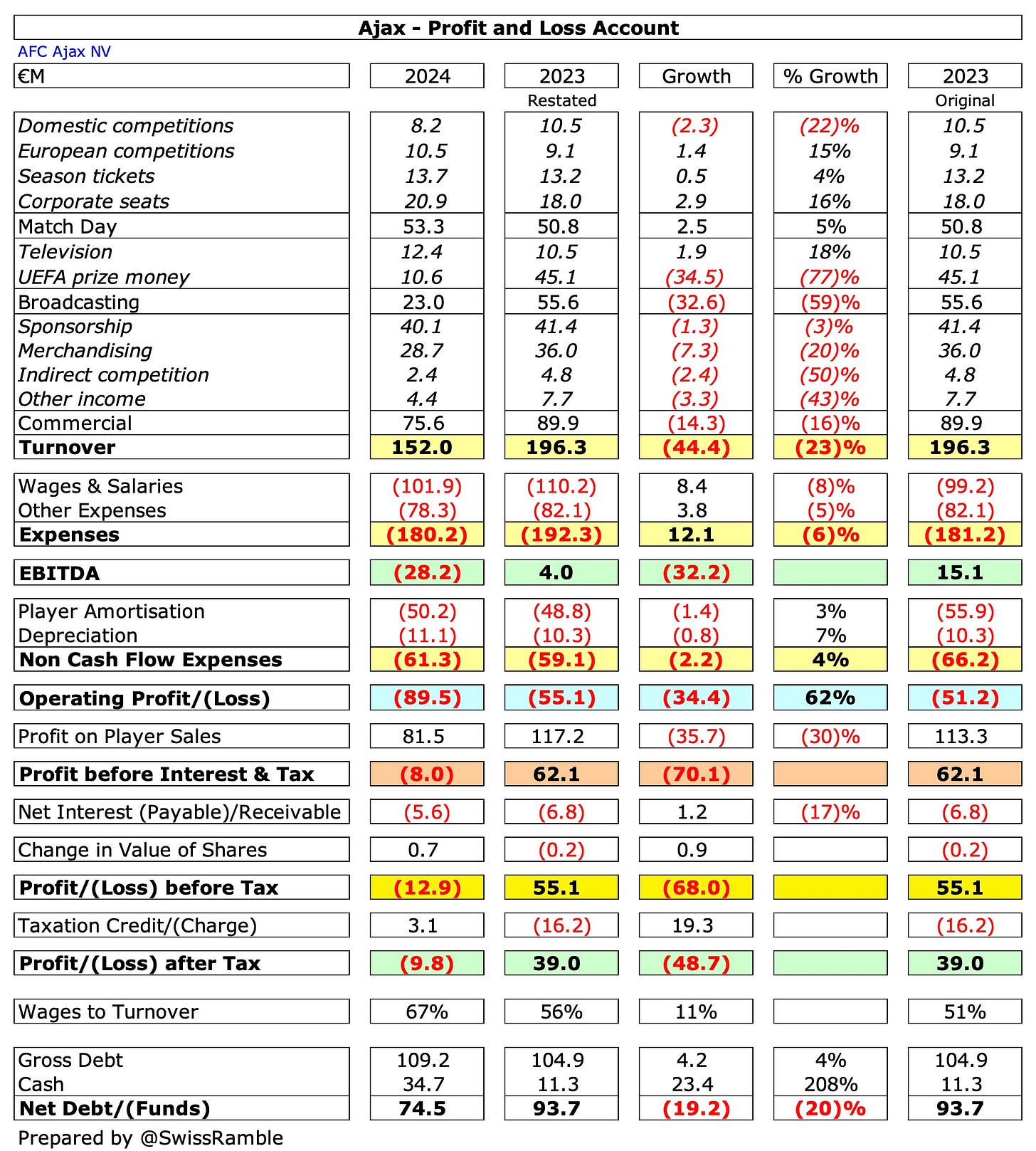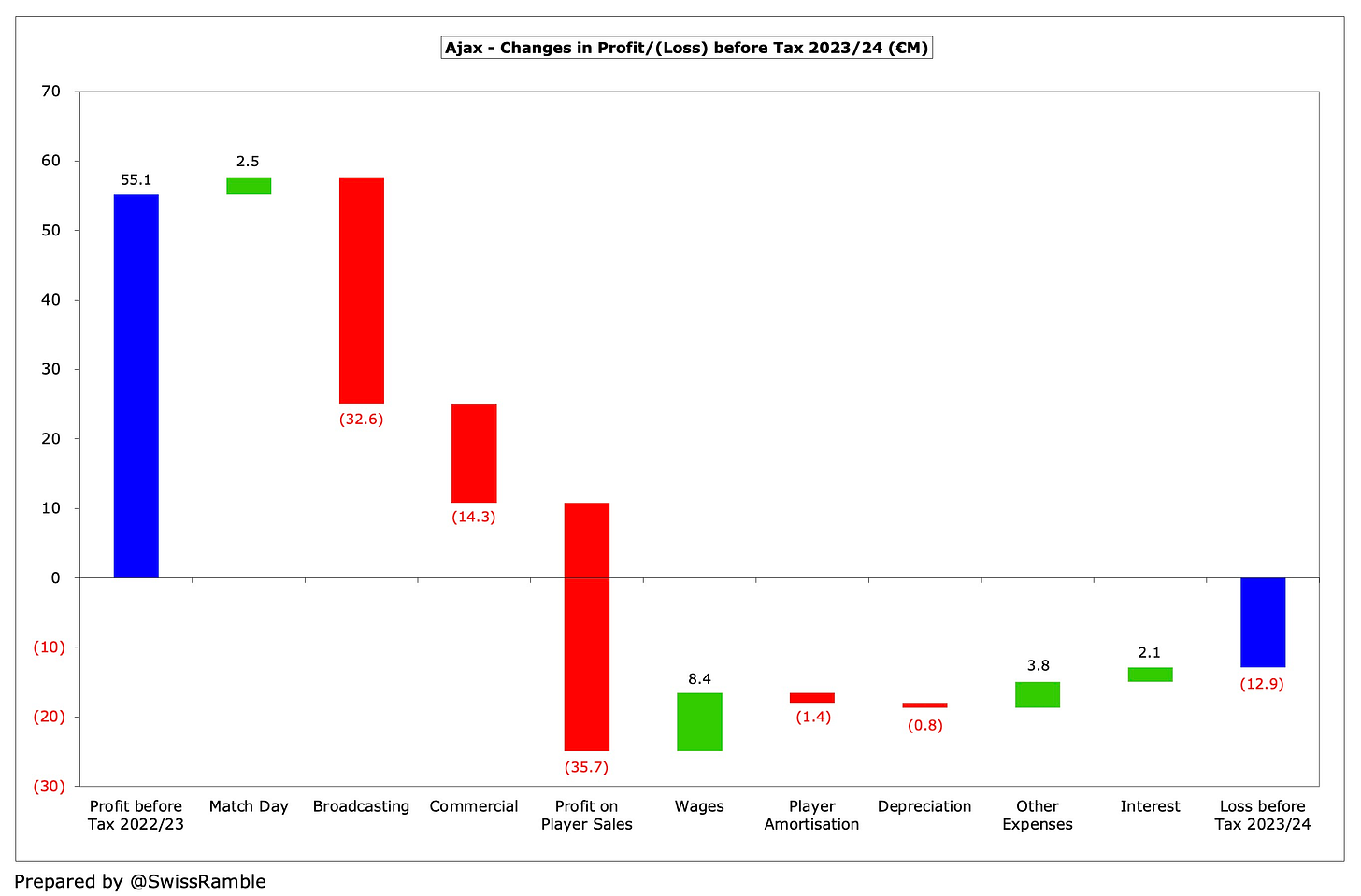Ajax supporters could probably find some choice words to describe the club’s 2023/24 season, though the board opted for “disappointing” in the recently published annual report.
This was completely understandable, given that Ajax slumped to fifth place in the Eredivisie, while “another sporting low point” came when they crashed out to amateur club USV Hercules in the second round of the KNVB Cup.
Despite only competing in the Europa League, they still failed to get out of the group, thus dropping down to the Conference League, where they were eliminated by Aston Villa in the last 16.
This was a far cry from the success enjoyed under Erik ten Hag, highlighted by Ajax being seconds away from reaching the Champions League final in 2019, before they were cruelly denied by Tottenham’s late goal.
Managerial Changes
Ajax’s plight has not been made any easier by the numerous managerial changes since ten Hag exited stage left in 2022, though to be fair it’s not worked out too well for him either, considering his continuing struggles at Manchester United.
In fact, Ajax are now on their sixth manager (including caretakers) since he left. Alfred Schreuder was given first crack of the whip, though he was released after only six months, replaced by John Heitinga until the end of the season.
Maurice Steijn was up next, but the former Sparta Rotterdam manager always looked like a strange choice, as his teams tend to play in a very different style to Ajax, so it was no great surprise when he was dismissed in October, leaving Hedwiges Maduro in temporary charge.
Matters improved a little under John van’t Schip, though his contract only ran to the end of last season. The current holder of what has become a rather poisoned chalice is Italian Francesco Farioli, the former manager of Nice.
Executive Management
There has also been significant upheaval at the executive level, which has clearly not helped matters.
Arguably, the club’s issues started with the departure of former director of football, Marc Overmars in February 2022, following a newspaper investigation that revealed a “series of inappropriate messages to several female colleagues”.
Then came the retirement of chief executive Edwin van der Sar in May 2023 after seven years in charge, as the former goalkeeper complained of being exhausted.
It didn’t stop there, as the club fired their Director of Football, Sven Mislintat, while he was under investigation for a potential conflict of interest in a player deal. The enquiry eventually cleared the man known as “Diamond Eye”, though it did criticise the club for giving him a free rein to buy and sell players.
Following Ajax’s failure to qualify for the Champions League, Mislintat had been tasked with reducing the wage bill by offloading players, though he also splashed out more than €100m on bringing new recruits to Amsterdam. Based on the club’s results since then, it’s fair to say that his “wheeling and dealing” has not exactly been a resounding success.
In addition, other senior figures have left this year, including the supervisory board chairman, the finance director and general manager.
On top of that, chief executive Alex Kroes was suspended after accusations that he has been involved in insider trading after buying 17,500 shares in the club a week before his appointment was made public last August.
League Position
Things had been going so well for Ajax, as they had won the Dutch league three times in four seasons (the missing year was declared void due to COVID), but they have not won a trophy in the last two years.
In fact, the last time that Ajax finished as low as fifth before last season was over 20 years ago, way back in 2000.
That actually represented something of a recovery, considering that at one stage they found themselves at the bottom of the Eredivisie table for the first time ever.
The bad mood around the club was reinforced when their fans forced the home game against Feyenoord to be abandoned, with their team already 3-0 down to their rivals, followed by riots around the stadium. The club described this as a “jet black day”.
So things look fairly bleak for Ajax at the moment, but does that also extend to the club’s finances?
Let’s take a look at the accounts for the 2023/24 season to answer that question.
Profit/(Loss) 2023/24
As the club pointed out, financial prospects are often driven by sporting results, so the lack of success last season has also been reflected in the bottom line.
As a result, Ajax went from an impressive €55m pre-tax profit to a €13m loss in 2023/24, a massive €68m deterioration. This was largely due to revenue falling by €44m (23%) from €196m to €152m, while profit from player sales decreased by €35m (30%) from €117m to €82m.
This was partly offset by a €10m (4%) reduction in operating expenses from €251m to €241m.
After tax, the previous season’s €39m profit swung to a €10m loss.
Ajax’s revenue was hit by not playing in the Champions League, which contributed to a €33m (59%) reduction in broadcasting from €56m to €23m, while commercial fell €14m (16%) from €90m to £76m, mainly due to lower merchandising.
This was slightly offset by match day rising €2m (5%) from €51m to €53m, largely due to more income from corporate seats.
The wage bill fell €8m (8%) from €110m to €102m, while other expenses also reduced by €4m (5%) from €82m to €78m. There were slight increases in both player amortisation, up €1m (3%) to €50m, and depreciation, up €1m (7%) to €11m.
Keep reading with a 7-day free trial
Subscribe to The Swiss Ramble to keep reading this post and get 7 days of free access to the full post archives.







